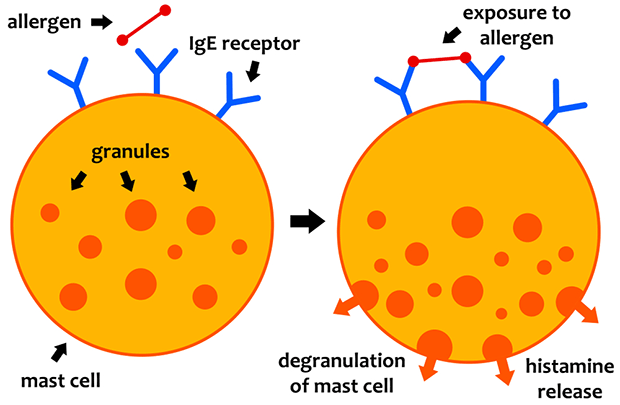Whether acute, chronic or seasonal, allergies are both physically and metaphorically draining. Mold, pollen, dust, skin particles, particular food varieties, and other allergens frequently strike us down. It may be surprising to learn that inflammation is the root cause of most allergic reactions. Untreated, this hidden culprit has the potential to cause a domino effect of even more serious health issues than just a runny nose or itchy eye. Many of you have probably experienced some sort of allergic reaction at a point time in your life, and regardless of why it started and what your symptoms are, it’s important to treat at the start. While there are many conventional over the counter options available, but what happens when they don’t work? And, are the side effects worth dealing with?
CBD is a potent anti-microbial and anti-inflammatory and said to be highly effective in not only reducing inflammation but also in alleviating other annoying allergy-related symptoms. So, if you’re in search of answers and wanting to taste the gospel of this all-natural alternative, read on.
What are allergies and how have they been treated?
Let us understand that allergies are not the same as symptoms. They are broken down into three different categories: inhaled, ingested, and contact. Allergens inhaled affect the eyes, nose, and lungs, ingested allergens affect the intestines, stomach, and mouth, and lastly, contact allergens mainly affect the skin.
If you’re not well-versed in the biology behind allergies, in short, pro-inflammatory mediators called cytokines get released after immune defenses in the body are triggered by foreign substances (allergens). In trying to identify and neutralize these allergens, a localized inflammatory response is triggered by the immune system, which can cause a number of reactions in the body, including hyperinflammation.


